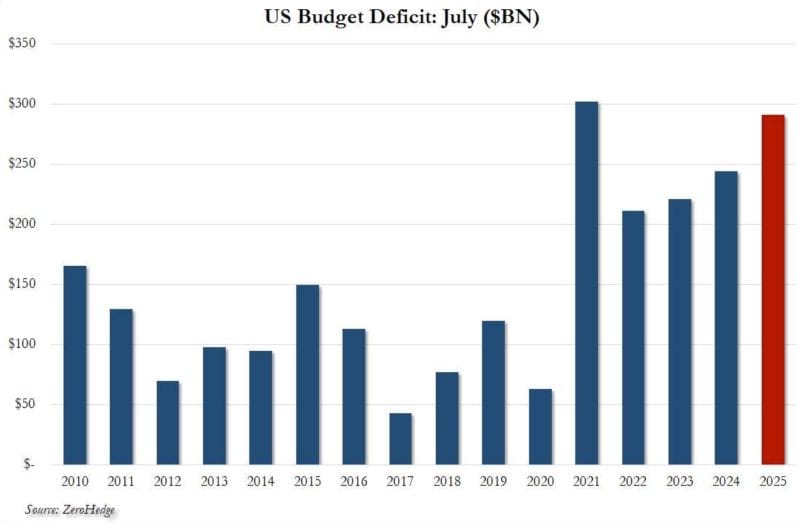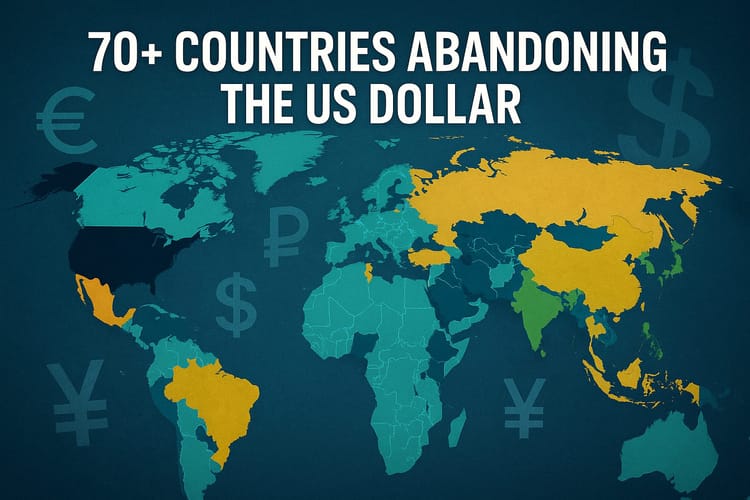QCI #011 - US Budget Deficit as of July 2025

The United States has had a budget deficit since the 1970s, which it can maintain sustainably because it is the main world reserve currency. America's trade deficit has grown since the 1970s, from a balanced position to around 2% of GDP by the early 1990s. From 1995 to the 2008/2009 Global Financial Crisis, which was created by misrated credit-derivative products and loose Real Estate lending regulations, the deficit rose to 6% of GDP.
A Budget Deficit and Trade Deficit are two of the main catalysts for one of America's two most significant problems today: US Outstanding Sovereign Debt. The second being WePay, AliPay, Pix, and a BRICS version of the Euro, which would be a competing World Reserve Currency, lowering America's Budget and Trade Deficit sustainability.
A competing World Reserve Currency will force Trump and the next administration to lower the value of the US Dollar in international markets to pay off the $37 Trillion Debt until the US economy reaches a 60% Debt-to-GDP ratio.
Trump's tariffs are forcing competing economies to abandon their US partnership, but only economies that rival the US or have rivaled the US in the past are doing so. Countries that do not want to trade on an even playing field or closer to it in terms of tariffs with the US are joining BRICS. This week, Japan moved to join the BRICS coalition, which is a huge geopolitical tilt as Japan protects US trade routes in the Pacific.
At the same time, President Trump's tariffs make sense because he is getting ahead of a US economy that is beginning to lose to China, although we are a decade ahead, and is unable to pay its Sovereign Debt without surging inflation. At the current tariff structure, the US keeps losing on trade over the course of decades, its debt grows, and other economies outpace the US with new trade alliances that are not beneficial to the US. Trump is speeding up the process by forcing their hand; they're doing what they were going to do in the near future today.
The US can solve this problem today, in ten years we lose our global economic leadership, which is why Trump's tariff negotiation moves make sense.





Member discussion